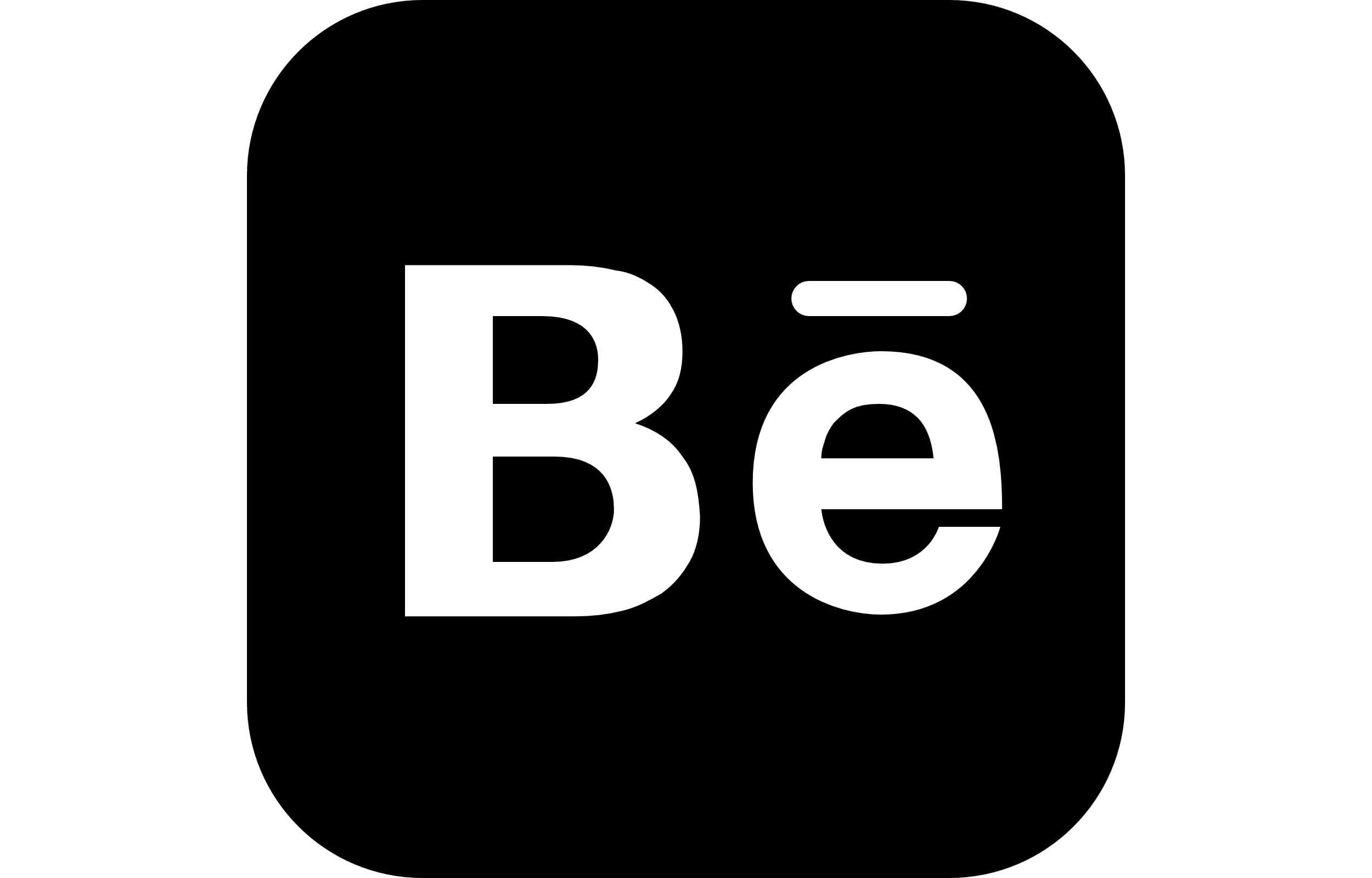How to find (and hire) good freelancers
There are freelancers in pretty much every industry. The IT sector, for example, would be inconceivable without them. But they also make valuable contributions in other areas. We show you how you can always find the best freelancers.
Table of contents
For a long time, companies have been somewhat reluctant to hire freelancers. One of the reasons for this was their mistrust of the work ethic and skills of these freelance, decentralised workers. And often difficult acquisition or too tight budgets also played a role.
But since the pandemic, these concerns have largely been put to rest. Freelancer platforms experienced a real boom, and it became apparent that freelancers are actually an important building block for the agility and innovative power of many companies.
As a result, freelance professionals are gaining in popularity thanks to their extensive expertise and flexibility. However, because there are so many of them, finding the right freelancer can be difficult.
With this article, we want to help you find the best freelancer for your project. Stay with us until the end, because over the course of this article you will learn about:
- What is a freelancer exactly?
- Why and when should you hire freelancers?
- How to get in touch with freelancers?
- Where to find freelancers for your project?
- What else you should bear in mind
We’re sure you’d like to get started straight away. We understand. However, you shouldn’t just rush into things when it comes to hiring freelancers.
So, before we turn to the practical side and show you where and how you can find the best freelancers, we’ll first spend a few minutes on the what and why. Follow us on this short excursion.
What is a freelancer exactly?
If you are not familiar with the term freelancer, here is a brief explanation: Freelancers are self-employed people who operate in almost all sectors (e.g., Advertising, Finance, and IT) and in various niche areas.
In general, they are highly qualified and specialised professionals who have defined their field of activity in such a way that their special skills are put to best use. This often allows them to develop in a more targeted manner.
In this respect, they are ahead of most salaried employees, who often cover a wide range of tasks and responsibilities and have to use an equally wide range of different skills to do so.
Their self-employment also makes them entrepreneurs in their own right: Freelancers practise their profession on their own account and under conditions they set themselves (working hours, salary, etc.), but nevertheless on behalf of a company (client).
They also have to acquire clients on a regular basis and rely on their good reputation, which they build up through expertise, efficient working methods, good time management, and reliability.
You can find out more about freelancers (e.g. further advantages and disadvantages of their use) in our glossary article on this topic.
Why and when should you hire freelancers?
As already mentioned above, freelancers are very common and also in great demand, especially in the IT sector. In the German IDG study “IT Freelancers 2021”, 78% of the companies surveyed said they had employed at least one freelancer in the past year.
But why so many? Let’s have a look at the reasons:
1. Structural change
Let’s stick to the example of the IT sector for a bit.
The first reason for the so frequent use of freelancers in this sector is the particularly large shortage of skilled workers. Another persistent problem is that the requirements for existing skilled workers are constantly shifting.
In some cases, they are changing so fast that many companies cannot keep up with training their employees: A study by McKinsey reported that 800 million IT professionals worldwide will be affected by this change by 2030.
Of them, 375 million will have to be completely retrained in order to acquire the knowledge and skills essential for this industry in the future, such as process automation, artificial intelligence, machine learning, data protection, and data processing.
Of course, this problem does not only affect the IT sector, but all other sectors as well. If we return to Germany as an example and look at the local labour market, a similarly disturbing picture emerges:
Due to structural change, a total of 10.5 million skilled workers in all sectors will be forced to develop or reorient their careers by 2030.
For more outlooks on the future of the labour market, the skills that will be important in the future, and possible training measures for your employees, see our blog articles on upskilling and reskilling and on skills training.
2. Hiring new employees is usually not economical
Of course, temporary hiring is not uncommon as a solution. However, it consumes a lot of time and money to find and hire suitably skilled workers in the first place.
In addition, the projects affected by this usually cannot wait until the necessary training measures have been carried out. Hiring new staff for a specific activity or project is therefore often not economical.
And since the task typically also requires expertise that is not available within the company, external support is inevitably needed (outsourcing or out-tasking).
3. Temporary work is often not a solution either
Temporary work can be a great solution to bring missing know-how into your company. However, one must not forget one thing: Temporary workers are also skilled workers who have to cope with the changing labour market.
How quickly and how thoroughly these employees are trained depends very much on their employing staffing company. But not every company is aware of the urgency of this problem.
Thus, temporary employment often falls away as a solution to this problem. This is precisely when freelancers come into focus as an interesting alternative.
How to get in touch with freelancers?
Now you know why you might want a freelancer, it raises the next question: Where is the best place to start and find them? You can find freelancers in several ways:
1. Search freelancer portals
Freelancer portals are like regular job boards you would use to look for employees: There are national and international, as well as general and specialised (creative professions, IT, consulting) platforms.
The choice is correspondingly large, and the chances of finding only partially suitable freelancers are all the greater. Above all, however, this process—similar to the direct search for candidates—is particularly time-consuming and therefore only makes limited sense.
If your freelancer is needed for an urgent project, we recommend the next two options on this list.
2. Hiring a recruitment agency
Some recruitment agencies also offer the placement of freelancers.
They know the skills and experience of freelancers inside out and can quickly provide you with some suggestions that match your project.
This way, in urgent cases, you can get your external specialists much faster. But you have to pay much more for them, because the intermediaries do not work for free, of course.
By the way, in order to work effectively, recruiters need a detailed description of the project and the requirements. More on this later on.
3. Place a job ad
A somewhat more passive—but by no means inefficient—approach is to place a job ad on suitable job boards or freelancer portals. Freelancers who recognise themselves, their skills, and experience in your advertisement will then approach you.
JOIN can help you find qualified freelancers via suitable job portals: Thanks to our powerful multiposting feature, you can reach talented freelancers on several platforms at the same time with just one advertisement. This will help you find the best support for your project more quickly.
Find Freelancers with JOIN
Discover how JOIN can help you find freelancers for your projects faster
Learn moreYou can find a selection of our best freelancer job boards further down in this article.
4. Network and get recommendations
Freelancers have become an indispensable part of the job market, as the statistics above clearly show.
This means that there is a high probability that other companies you have connections with have already worked with a few of them.
You can take advantage of this in your search and simply ask your network for experiences and recommendations. Similar to an employee referral, this can help you find great (freelance) talent and hire them cost-effectively.
In addition, some freelancers know each other, so you can also ask your (former) freelancers for recommendations.
The how has been clarified. But now it’s finally time for the search: On the platform, ready, go—or not? Some platforms are undoubtedly more promising than others.
We’ll walk you through possible places where you can find freelancers in the next section.
Where to find freelancers for your project?
Of course, there is an enormous range of freelance platforms, and each of them works very differently. Nevertheless, we have summarised all the important types below to give you the best possible overview of your options.
Let’s first take a look at the obvious places to start before we turn to the slightly more professional solution.
Popular freelance portals
When you think of freelancers, platforms like Upwork, Fiverr, or Freelancer.com probably come to mind first.
Of course, there are also generalist and niche platforms in the freelancer segment. For example, for specific professions, countries, experience levels, and much more.
The way these platforms work is quite simple. Since they are aimed exclusively at freelancers, there is usually no need for a job advertisement here, just a short project description, which is then published for all freelancers to see.
This could look like this, for example:
“Looking for content writer or copywriter for 10x articles of 2,000 words each in the area of health and fitness”.
If a freelancer is interested in this task, they respond and get in touch with the client directly.
However, for all their simplicity, these platforms can also bring unpleasant surprises.
The first problem is that there are unfortunately many unqualified freelancers who offer their services at bottom prices. This is usually reflected in the results.
The far bigger problem, however, is that they increasingly drive out the very serious and qualified freelancers you are actually looking for. Professional freelancers simply cannot work for such prices.
The cause of this is the growing “gig economy”—a well-known social problem.
This is a growing sector of the labour market where instead of permanent jobs, mainly short-term or order-based contracts are concluded—and usually under very poor working conditions.
Of course, this does not mean that there are no qualified freelancers on the above platforms. But it is becoming much more difficult to find them due to the growing number of “cheap freelancers”.
For these reasons, we recommend option number two, which we’ll explain next.
Freelancer job boards at JOIN
As mentioned above, JOIN as your Applicant Tracking System (ATS) also gives you the opportunity to effectively and specifically find freelancers—truly qualified and professional ones.
Since these are more regular job boards (which are sometimes, but not always exclusively, aimed at freelancers), you need to create a more traditional job ad. It sounds like more work at first, but it’s not:
The content of a job ad can be quickly transformed into a project description. But you can make it clear that your job ad is aimed at freelancers by simply using the job title.
But the best thing about it is this: with JOIN, you only need to create one job ad in a single tool instead of having to post your project description on many platforms in parallel.
Thanks to our powerful multiposting feature, with just one click your posting will automatically be published on 10+ free and your desired premium platforms simultaneously.
To help you get started with your search for professional and, above all, qualified freelancers, we present below our best job boards where you can post your freelance job ad:
 |
Remote.com
Remote.com is an international job board that brings together companies and freelancers from all over the world and all industries. It also offers useful services for managing the collaboration, such as uncomplicated invoicing and payment in over 100 different currencies. |
 |
Dribbble
Do you have a creative project in mind? Then Dribbble is a good choice for your posting. The Dribbble platform is aimed at design freelancers from all over the world and has one of the largest designer communities worldwide. You can also find graphic and product designers here, and a host of other creative professionals. |
 |
LinkedIn
LinkedIn unites job seekers and freelancers from all over the world in a social network with over 260 million active users per month. Here you can find freelance specialists for all industries and numerous fields such as design, marketing, PR, IT, finance, data, legal, and much more. |
 |
Behance
Behance is a platform from the Adobe family on which creative freelancers from all industries can present their work. At the same time, Behance operates an international job exchange for freelance jobs, on which advertisements for a wide range of creative fields can be published. |
 |
XING
Are you trying to find German-speaking freelancers? Then XING can also be a good platform for your freelance job ad. XING is a social network with 19 million members in the DACH region—including freelancers—and has an enormous reach in the German-speaking market. |
 |
Arbeitnow
The job board Arbeitnow helps job seekers from all sectors to find employment and freelance jobs in Germany. The IT sector is particularly well represented here. Do you have an IT project in your pipeline? Then there’s a good chance that your next freelancer is waiting there for your job. |
You can find a complete list of job boards where you can publish your job ad with JOIN on our platform overview.
However, before you get started, there are a few important points to consider before you publish your freelance job ad with JOIN.
We’ll explain what you need to consider and why it’s important in the following section.
What else you should bear in mind
Like many other things in life, the search for freelancers also requires some important preparation steps that you should not skip.
This is especially true if you are working with them for the first time! Because the more complex your project and the more specific your requirements, the more expertise you need to bring the necessary know-how into your company.
Before the search
Before you actively search for freelancers, we recommend that you first give some thought to the formalities of working together:
Planning ahead, setting priorities
Due to the ever-growing demand for freelancers, the really good ones are particularly sought after and often booked up long in advance.
For this reason, companies have no choice but to plan projects and the associated milestones, in which the external professional is to be involved as carefully and as far in advance as they can.
If several important projects are pending, it’s advisable to set priorities when planning them. After all, important does not necessarily mean urgent.😉
Networking
Aside from planning ahead, it may also be worthwhile to take the precautionary approach of networking thoroughly, as mentioned above.
After all, the likelihood that your contacts have already worked successfully with freelancers is relatively high.
And this is where you can start to build contacts with qualified freelancers—similar to the talent pool in recruiting—so that you can successfully complete your search a little faster.
Know about legal aspects
As a rule, the cooperation with freelancers is contractually agreed upon. There are a number of legal factors to consider, for example with regard to the type and nature of the service, the scope and period of services, the agreed remuneration and, of course, compliance with the GDPR.
That’s why it’s important that you inform yourself in advance about the legal requirements of the cooperation and the contract. If you have any questions, it is always advisable to work with the relevant specialist lawyers.
In our opinion, the following measures are at least as important for great cooperation. They will not only make it easier for you to find suitable freelancers, but will also ensure more successful cooperation:
Create a job description
At JOIN, we also work with freelancers in some departments and have found that it is extremely important to clearly define the activities and areas of expertise of a freelancer.
This way, not only our freelancers know exactly what they are responsible for, but also the team members who will work with them.
Lack of clarity in this regard can quickly lead to:
- Expensive (and possibly unnecessary) extra work on both sides
- Divergent and unproductive results
- Expensive delays to the project
Worst case scenario, it can even lead to the termination of the contract and legal disputes.
Therefore, you should define very precisely what role the freelancer is supposed to take on. And the best way to define this as clearly as possible is to draw up a detailed job description.
This is probably what you would do anyway if you were looking for an employee for these tasks. And in the end, freelancers are, in a way, also employees of the company—even if they are not permanent employees.
Working on the job description is worthwhile, because it not only helps you to keep an eye on the exact requirements, but can also be converted later for a job advertisement and freelance contract.
Determine a fixed contact person
Just like in regular recruitment processes, you should also define a fixed internal contact person in advance, whom your freelancer can turn to in case of questions.
This person should also be able to coordinate the cooperation and communication with the freelancer. It can also be helpful to agree on a common communication platform (such as Slack or email) in advance.
The more people work on a project, the faster you lose track of everything and the risk of miscommunication increases, which in turn could lead to the consequences described above.
During the search
Before we get straight to the possible search approaches, we will additionally present a few clues that you should consider during your search. This may help you to make a decision later on:
Check website and/or portfolio
Freelancers usually do not send CVs or references. So how do you know what to expect from them?
Instead, most freelancers have a professional website or at least a portfolio where they present and describe not only their expertise, but also their previous projects and work results.
That’s pretty close to a CV, isn’t it? And already the project to find a freelancer almost feels like a normal hiring process.😉
Look for style and quality
The more similar your previous experience is to your upcoming project, the better the chances are that you have found the right freelancer. All that’s left is to get the quality right!
Take the time to check the previous work results according to the portfolio for cleanliness, style, and quality. Has the freelancer adapted the client’s style well? Are there any major errors (e.g., in graphics, programming, or grammar)?
Checking these aspects will ultimately protect you from a rude awakening and help you to recognise whether the freelancer has perhaps rated themselves a little too well… 🧐
Read reviews
Even if the style, quality, and experience have been absolutely top-notch up to this point:
Check whether previous contractors of the respective freelancer have left reviews on working with them—be it on platforms or their own website—and of course what they say.
As far as predominantly negative reviews are concerned, we probably don’t need to discuss this further. If there are no reviews at all, you should at least be suspicious.
This does not automatically have to be bad, because everyone starts from scratch at some point and has to collect their reviews first. However, if there is an extensive portfolio and no, or only very few, reviews, that speaks a different language.
In such cases, you can either contact the companies listed in the portfolio yourself to make an enquiry, or you can go directly to our next recommendation:
Submit an enquiry and have an initial discussion
Do you have several favourites or are not quite sure about some of them? Then it is advisable to get in touch with these freelancers and make an enquiry. As we all know, it doesn’t cost anything to ask.
Make sure that you describe your project (goal, content, tasks) and your requirements (budget, deadline, qualifications, place of work) as precisely as possible.
It is also worthwhile to hold short initial meetings to get to know each other. This can be done in person or by video or phone call and can be helpful to check whether your potential freelancer has the necessary soft skills.
Get started now and find qualified freelancers
Now you know everything there is to know about finding (and hiring) qualified freelancers.
The best thing to do is to get started right away, create your job ad and publish it on the platforms you want. In our extensive library of job description templates for many in-demand professions, you’ll find more free resources that you just need to adapt to your needs.
You can find more useful suggestions, for example on writing job ads or communicating with applicants, in our guides and blog articles linked below.
Sarah Heßler
Sarah Heßler was a bilingual Content Manager at JOIN who loved to share knowledge with our visitors and enjoyed writing about HR and Recruitment topics from many different perspectives.


![Hiring a project manager [how-to guide]](https://cdn-public-assets.join.com/2023/10/8d26d04c-hiring-project-manager.jpg)